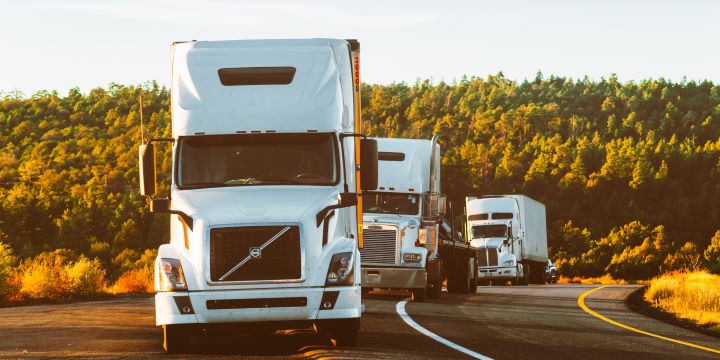The intricacies of supply chain management require robust and flexible trucking solutions to ensure streamlined operations and timely deliveries. In a business landscape that is increasingly global and interconnected, the role of trucking has become more pivotal than ever before. When securing a reliable and efficient service, entities such as trucking companies in Georgia play an instrumental part in supporting the regional and national economy.
Table of Contents
- The Role of Trucking in Modern Supply Chains
- The Rise of Technology in Trucking Operations
- Mitigating Risks in Transportation
- Economic Implications of Efficient Trucking Services
- Environmental Considerations in Trucking
- The Importance of Choosing the Right Trucking Partners
- Regulations and Compliance in the Trucking Industry
- Future Trends in Trucking and Logistics
Key Takeaways
- Trucking is a linchpin in the logistics framework, ensuring efficient and reliable supply chain operations.
- Embracing technological innovations is crucial for trucking operations to satisfy modern logistics demands.
- Environmental sustainability is a significant aspect of the trucking industry’s future direction.
- Choosing capable and trusted trucking partners is essential for business logistics success.
The Role of Trucking in Modern Supply Chains
The logistics and transportation industry has seen dramatic changes that have completely changed how companies manage their supply chains. As the essential link between various supply chain segments, trucking provides a versatile option appropriate for multiple items and delivery dates. The ability of a company to meet customer expectations and maintain market competitiveness is greatly influenced by the accuracy and dependability of transportation services, such as the trucking companies in Georgia. Therefore, collaborating with competent trucking operations is practical and strategically essential for modern enterprises.
The Rise of Technology in Trucking Operations
Technological innovations are redefining the trucking landscape, yielding unprecedented operational efficiency and safety. GPS tracking, electronic logging devices (ELDs), and advanced fleet management software are just a few examples of cutting-edge technologies being deployed. These tools provide real-time data and analytics for more informed decision-making and help optimize routes to reduce fuel consumption and enhance delivery times. Supported by comprehensive data, Forbes notes how the infusion of technology into trucking operations is critical in maintaining a competitive advantage in today’s fast-paced market.
Mitigating Risks in Transportation
One of the most prominent risks in the transportation sector includes the variability and unpredictability of transit times that can be affected by weather conditions, road infrastructure, or regulatory delays. Companies must adopt a proactive approach to risk management, relying on sophisticated analytics and responsive strategies that can adjust to changing circumstances. By taking such initiatives, trucking companies can reduce the likelihood of costly delays, thereby ensuring consistent service delivery and maintaining customer satisfaction.
Economic Implications of Efficient Trucking Services
The correlation between an efficient trucking sector and a thriving economy cannot be overstated. Efficient trucking companies empower businesses by optimizing logistical operations, reducing overhead costs, and ensuring products promptly reach markets. Reduced transit time and costs enable firms to allocate resources more effectively, improving overall productivity and profitability. In this context, the economic implications of dependable trucking services empower individual businesses and stimulate regional commerce, job creation, and innovation.
Environmental Considerations in Trucking
As environmental sustainability becomes more pressing, trucking companies are increasingly held accountable for their ecological footprint. Efforts to transition towards greener practices include:
- Exploring alternative fuels.
- Improving the aerodynamics of vehicles.
- Optimizing logistics to reduce unnecessary miles.
The Pew Trusts assert the importance of these initiatives, recognizing that incorporating environmentally friendly policies is not just ethically sound. Still, it also presents an opportunity to innovate and attract environmentally conscious customers. Looking forward, the challenge for the industry will be to balance operational demands with sustainable practices that support long-term economic and environmental health.
The Importance of Choosing the Right Trucking Partners
In the dichotomy of supply chain partnerships, selecting a trucking company influences a business’s operational capacity and customer relations. Companies should conduct thorough due diligence on potential partners, valuing on-time delivery rates, flexibility, and the ability to handle peak season volumes. Collaborations with trucking firms prioritizing safety standards and driver training exhibit a commitment to quality and minimize the risk of product damage and liability issues. Ultimately, aligning with a reliable trucking partner catalyzes business growth and strengthens the supply chain’s resilience.
Regulations and Compliance in the Trucking Industry
Regulatory compliance in the trucking industry is intricate, constantly evolving, and varies significantly from one jurisdiction to another. Companies must navigate various national and international standards covering cargo security, emissions, working hours, and road safety. In the face of these requirements, compliance becomes a legal obligation and a competitive advantage. Those who maintain a clear record and adhere to regulations position themselves as industry leaders, engender trust among partners, and contribute to global supply chains transparent and effective functioning.
Future Trends in Trucking and Logistics
Looking ahead, trucking and logistics will continue to evolve with technological progress and industry demands. Autonomous trucks, for example, are on the cusp of transforming the workforce and operations of trucking companies. Moreover, implementing blockchain technology promises enhanced security and transparency in logistical operations. To remain competitive and agile, businesses must anticipate these shifts and be willing to invest in innovation, adapting their models to harness the full potential of these emerging trends within the trucking industry.




